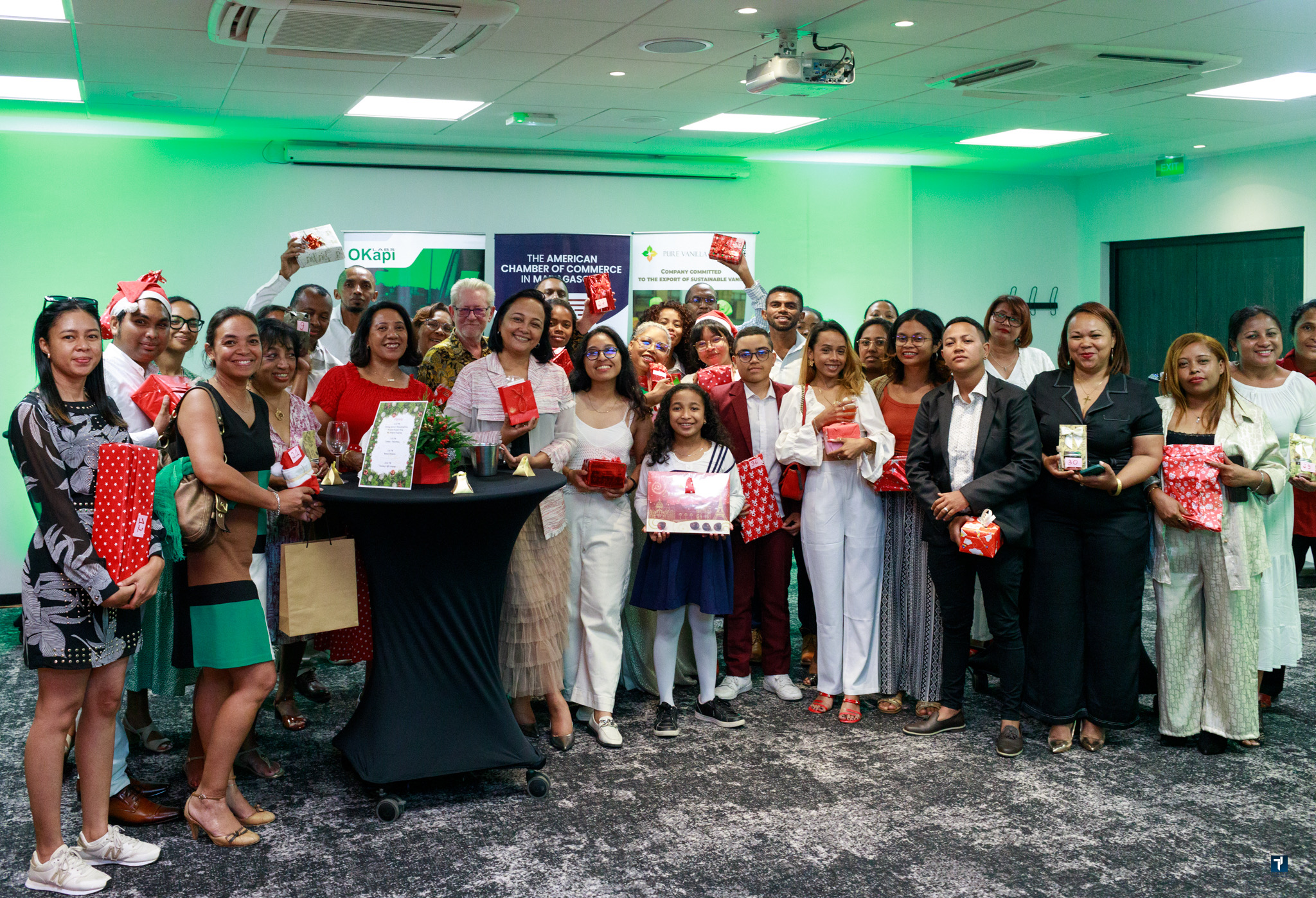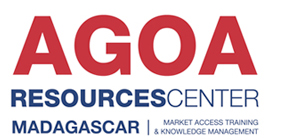THE AMCHAM POST - March 09, 2023

The Global Director of Stanford Seed, Jeff Prickett, paid a visit to Madagascar to hold an information session at Carlton Anosy about a couple of programs they are running. This institute is looking for promising business leaders across the African continent to enroll in their programs.
AmCham: What is Stanford Seed about?
Jeff Prickett: Stanford Seed is an institute that is based at Stanford University’s Graduate School of Business. It was founded in 2011 with alumni - Robert King - and his wife; and a dean of the business school at that time, who really inspired to take what Stanford does very well out into the world and to try to work with business leaders in emerging markets to create enterprises that can grow and have a positive impact on communities. That is what Stanford Seed is about: ending the cycle of global poverty by partnering with entrepreneurs in emerging markets to create thriving enterprises that can transform the lives of people. That’s why we are here. We have a few programs that we offer to entrepreneurs to drive that transformation.
AmCham: Who are the programs targeting?
Jeff Prickett: We have two programs that are dedicated to the leaders and teams of for-profit enterprises that want to grow and have a positive impact on their society. The ones that we are marketing to the Madagascar entrepreneurial ecosystem are the Seed Transformation Program (STP) and the Aspire Business Growth Program. The STP targets the CEOs or founders of for-profit enterprises from any sector across Sub-Saharan Africa, including the Indian Ocean; and also South Asia that have annual revenues between $300,000 and $15 million. Those locations are our geographic footprint today. We also have the Aspire Business Program that is only for Sub-Saharan Africa and that is for firms with $20,000 to $400,000 in revenue. We are targeting the same SMEs, but they are just a little smaller.
AmCham: Could you please provide further information about the Aspire program?
Jeff Prickett: When we first started the STP, we were marketing the floor for the $300,000’s revenues. We get more than 2,000 applications a year for the STP. Half of those are from firms that are below $300,000 revenues. Back then, people are coming to us for help, and we had to say “Thanks, but no, thanks. Grow and then come back later”. So, Aspire targets that group that was coming to us for help to support them in their growth. And we are also collaborating with the African Management Institute because we can’t do everything internally. We need to collaborate with other organizations like Henri Fraise here, like the De Beers group in Southern Africa, like AMI with Aspire. As it is the first time we do that ever, last year, we are getting a lot of positive feedback from the 70 entrepreneurs who entered that program. When they complete that program, we link them up with mentors from the STP. They can be mentored by more experienced business leaders to help them progress on their journey of growth. And eventually, we’d like to see all the Aspire participants to apply for the STP. So, it’s kind of a funnel in connecting those entrepreneurial ecosystems. Aspire is about five-month fully online program which is delivered entirely in French and English (separate cohorts), supporting the CEOs in up to two management teams.
AmCham: Still, the context of Madagascar and the United States is quite different. How appropriate is the core curriculum for business leaders in the marketplace?
Jeff Prickett: When we started our first program in West Africa in 2013, we went in with some assumptions. Just like an entrepreneur, we have an assumption about the market we are going to, and we test it and we learn. We continue to do that and continue to make changes to our program, to customize it to the marketplace. From a curriculum perspective, there are general management and business principles that apply to any business in the world. And I would say that one thing that Stanford brings is that unique way of teaching business, and these business principles can apply to anywhere in the world. We do have local case studies, we have a huge group of entrepreneurs from across the continent that are networking and connecting with each other. The program is also customized for business leaders because it’s not taking the CEOs away from their business. It actually allows the CEOs to work on their business practically. It’s not academic. The case study is their own company. We help them to work for their companies. That is why it is contextualized, and we have a business advisor who is assigned to ten or twelve companies. They fly out and actually come to work with them and their team in their companies, on location to stand the context in which they are working and help them develop their growth plan for their businesses and their environment. That is STP. Aspire is the same. It’s customized to them and their businesses.
AmCham: What about the timeline of the core curriculum?
Jeff Prickett: For the STP, the curriculum is divided into four parts. The first and the third part are in-person. The CEOs all come together for classroom weeks: one in Nairobi, one in Accra. The other parts are online. We do virtual sessions with our faculty and in each one of those four parts, there are workshops with the CEO and the leadership team of each company. For the two of those, advisors fly to the companies; the two remaining ones are done online. Then, across the curriculum, the whole team is putting together the transformation plan - a practical firm-level plan for growth and scale. That is the end of the program: you present that transformation plan to us, we review and provide feedback on it, and then we help them to grow beyond the program. This latter includes strategy, strengths and weaknesses of the participant’s organization, operations, value chain, accounting and marketing. Those are the kind of the core parts of the program from a curriculum major perspective. There are 14 majors across four parts. Aspire is broken up into six parts that are across five months. It’s really about developing what is your growth goal, to aspire. And then, what is your organizational practice that you need to focus on. What’s your weakness? What do you want to focus on to support your growth as an organization? That’s the six parts. We learn about the tools applied to their business. We initiate networking sessions as well so that other entrepreneurs can talk about their own business challenges. At the end of the program, they can apply for mentorship. The STP is ten and Aspire is about five months, and both are part-time. You’re not away from your business. Both of them are applying in the concepts to their business in real-time.
AmCham: What do you expect from the current cohort?
Jeff Prickett:First, this is the first program that we’ve been back in person after Covid-19. We used to have more in-person programs, and then we went fully online. Now we are trying to do, like all firms globally, blend those two and maximize the online learning environment and the in-person one. So, the business leaders who are going through this year’s program are experiencing something new. Also, this is the first time we run an East and West Africa program. Now, it’s Pan-African. We heard that East Africa is connecting to West Africa, Southern Africa and so forth. For Madagascar specifically, we have seven entrepreneurs in the program. We are expecting to drive a huge amount of value from it to grow their businesses, have an impact and to further our recruitment. We want them to continue to feel the value that they already perceive and help us to grow the network here. Eventually, I would like to see 40 or 50 entrepreneurs from each program, connect them and really start to catalyze the entrepreneurial ecosystem where investors and policymakers can listen to them for the benefit of their businesses and the Malagasy society.
AmCham: What about the application timeline?
Jeff Prickett:For the STP, the application is open from March 1st to May 15th. We then evaluate participants and will admit those who have been selected during the first week of October – for the program starting next January 2024. After, we go through a few application phases, but the first thing is to snag the application online at: seed.stanford.edu. For Aspire, the application is open now. We are doing a program in English that is starting in a few weeks, actually. You can apply until March 13th. There will be more; we are going to continue our collaboration with AMI. So, if you miss out on it now, no big deal. The french-speaking application opens today through when the program starts in May. So, we have multiple opportunities to apply for Aspire to this year and next year. And the STP is more than an annual process.
AmCham: A few messages for potential participants for both STP and Aspire …
Jeff Prickett: If you, as a business leader, feel like you’re stuck, and you feel like you want to grow, and you feel like you are in this all by yourself; both of these programs deliver a tremendous amount of value to you as a business leader practically to grow your business. We help you as a leader to grow, we help you and your team to grow, and we help your business to grow. Both of these programs are delivered at a highly subsidized array. From a pricing perspective, these programs are highly subsidized because of our endowment provided by our alumni supporting Seed. And, this is the same thing that the MBA's get at Stanford, but we come to you. So, apply now, and if you really want to grow your business, we will help you to do that.
The links for the two programs are listed below:
- Seed Transformation Program (STP): https://www.gsb.stanford.edu/seed/programs/transformation
- Aspire: https://www.africanmanagers.org/aspire-stanford-seed/
Interview by Maherintsoa Andrianiaina













